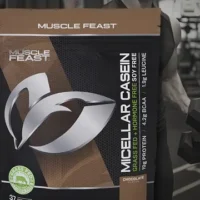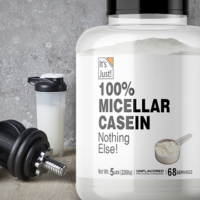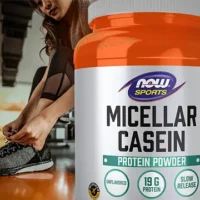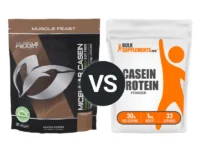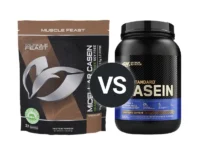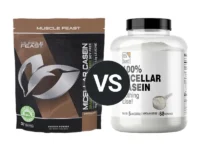Knowledge BaseYou're Questions Answered
What foods have casein in them?
Casein is a slow-digesting protein found primarily in dairy products. It makes up about 80% of the protein content in cow’s milk and other dairy-based foods. Casein is a complete protein, meaning it contains all nine essential amino acids necessary for human health. Many foods naturally contain casein, making them useful sources of this protein for individuals looking to support muscle growth, recovery, or satiety.
Foods That Contain Casein
1. Milk
Milk is the most abundant natural source of casein. Both whole milk and skim milk contain significant amounts of casein, with approximately 6 grams of casein protein per cup (8 oz). Milk-based products also contain casein unless explicitly labeled as casein-free.
2. Cheese
Cheese is a rich source of casein due to its high concentration of milk proteins. Some of the cheeses with the highest casein content include:
- Cottage Cheese: A high-protein cheese that is rich in casein, with about 12 grams of protein per half-cup serving.
- Cheddar Cheese: Aged cheeses like cheddar are concentrated sources of casein.
- Parmesan Cheese: One of the most protein-dense cheeses, parmesan contains a high percentage of casein.
- Swiss Cheese: Another excellent source of casein, often used in sandwiches and melted dishes.
3. Yogurt
Yogurt, particularly regular (non-Greek) yogurt, is another good source of casein protein. While Greek yogurt contains casein as well, some straining processes remove part of the casein content, leaving more whey protein. Casein in yogurt is particularly beneficial because fermentation makes it easier to digest.
4. Kefir
Kefir is a fermented dairy drink similar to yogurt but with a thinner consistency. It contains a mix of casein and whey proteins along with probiotics, which support gut health.
5. Butter and Cream
While butter and cream contain small amounts of casein, they are mostly composed of fat. Individuals highly sensitive to casein may need to avoid these products, but the casein content is minimal compared to other dairy products.
6. Ice Cream
Most traditional ice creams contain casein due to their milk and cream content. However, non-dairy or plant-based ice cream alternatives do not contain casein unless they are made with milk derivatives.
7. Processed Dairy Products
Many processed foods contain casein in the form of caseinates (sodium caseinate, calcium caseinate) or milk solids. These can be found in products such as:
- Protein bars
- Meal replacement shakes
- Some baked goods and processed foods
Related Questions
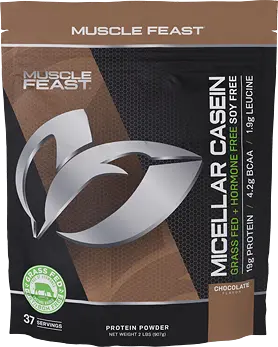
Your Answer
We are a participant in the Amazon Services LLC Associates Program, an affiliate advertising program designed to provide a means for us to earn fees by linking to Amazon.com and affiliated sites.

